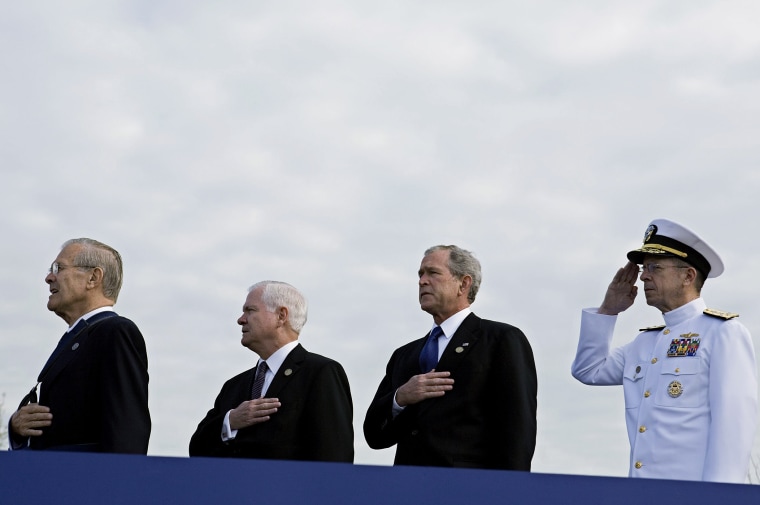It was 12 years ago this week when the Senate confirmed Navy Admiral Mike Mullen to serve as chairman of the Joint Chiefs of Staff. George W. Bush's choice for the position was so uncontroversial, he faced no opponents and was confirmed by a voice vote. The decorated war veteran remained at the post before retiring in 2011.
What's occasionally struck me as politically notable about Mullen has been his willingness to take positions unpopular with Republicans, despite having been chosen by a Republican president and having been supported by GOP senators. The admiral, for example, was among the many U.S. military leaders to endorse closing the detention facility at Guantanamo Bay. Mullen also helped take the lead on ending the military's "Don't Ask, Don't Tell" policy.
In 2013, the right was not at all pleased when the retired admiral helped debunk the GOP's Benghazi conspiracy theories. In 2018, he also voiced public skepticism about Donald Trump's policy toward North Korea.
With this in mind, it's not too surprising that Mullen has a new piece in The Atlantic calling for a ban on assault weapons, though I have a hunch Republicans won't care for this, either.
[T]hese weapons are for war; they are not for sport. Assault weapons are designed to kill as many people as possible in the shortest time possible. As the tragic events last week in El Paso and Dayton attest, these weapons make it virtually impossible for law-enforcement agencies to stop those bent on taking lives. In Dayton, heroic officers responded within 30 seconds, and yet the shooter still killed nine people.I had hoped that our political leaders would put saving innocent lives ahead of their careers, if necessary sacrificing their own political ambitions to get this done. But our politicians have proved unwilling to take up the cause or to take risks for the sake of the many citizens, young and old, murdered both before and after Sandy Hook.
The retired admiral, imploring policymakers to act, added, "If we do nothing, many more innocent lives will be needlessly sacrificed -- and the blood of those innocents will continue to flow upon our hands."
It's worth emphasizing that Mullen's piece is strictly non-partisan, mentioning neither party by name, and urging both parties to act responsibly.
Given that the admiral knows of what he speaks, that seems like good advice.
